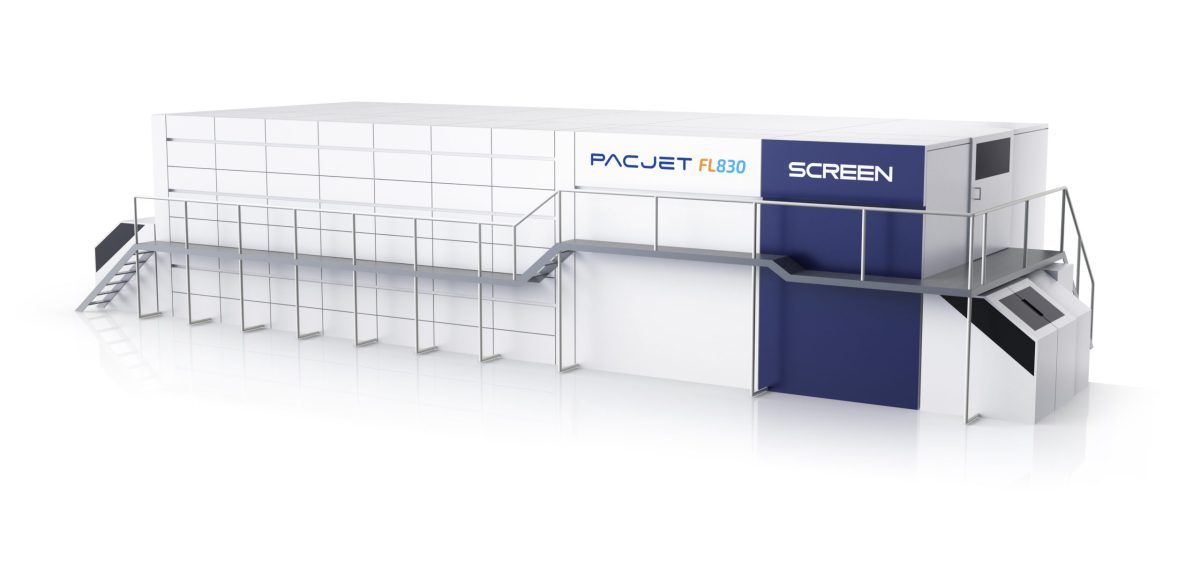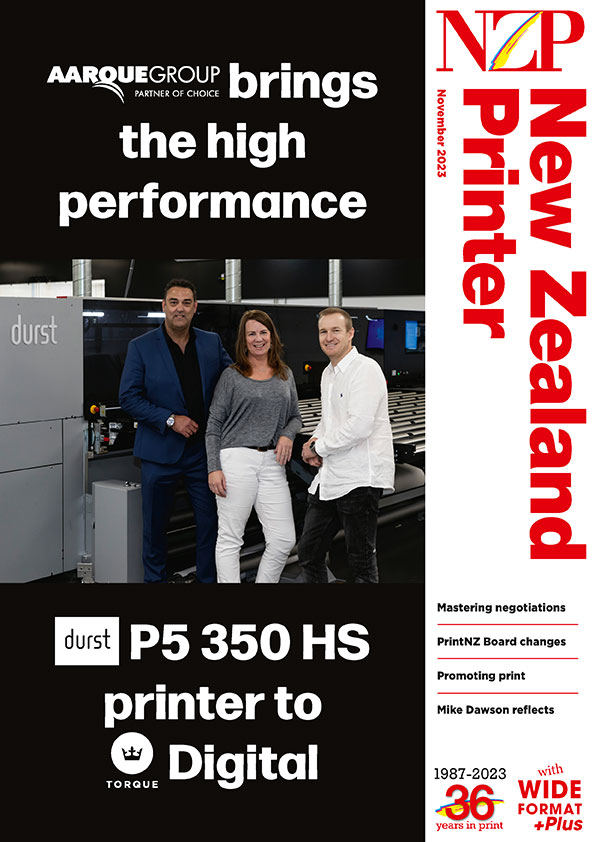Screen GP Australia has announced its global parent company’s plans to target package printing as a strategic business area.
It will progressively strengthen its product line-up and solution development for this market.
Peter Scott, Screen GP Australia managing director, says, “Screen GP plans to provide packaging printing solutions sees several exciting new products coming into our portfolio. This already includes the highly successful Truepress Jet L350UV digital label press series, with over 170 units shipped. Also, the recently announced L350SAI higher productivity seven-colour label presses; and the newly improved ‘N’ series of the PlateRite FX Flexographic digital plate makers.
“In identifying packaging print as a major growth area of the graphic arts, Screen has conducted extensive research and development. This brings sustainable, digital, variable and versatile on-demand production targeting folding cartons, corrugated and flexible packaging in addition to labels. The first new product announced is a new high-speed, water-based inkjet system specifically designed for the flexible packaging market. The PacJet FL830 is currently scheduled for release around Autumn 2021, just in time for drupa.”
The PacJet FL830
While certain flexible packaging products can be produced on the 350mm web Screen L350UV digital presses, conventional flexible packaging production lines require wider-width roll materials.
Scott says, “This is not an intermediate step-up. It is a whole new approach to flexible packaging based. Screen has based it on short run dynamics and addressing real FMCG market demands. These include rapid time to market with high quality vibrant packaging; clean, sustainable production bypassing the platemaking stage; and the ability to vary the printed content to suit variations in the product packaging such as flavours, versions and marketing needs.”
This high-speed, water-based inkjet printing system, designed for flexible packaging, handles media up to 830mm wide at speeds of up to 75 metres per minute. It can print at a resolution of 1200dpi using CMYK and White water-based inks that conform to relevant food safety regulations. Scott says these features allow it to deliver both the excellent safety and rich colour expression essential for the food products industry.
Applications range from promotional to production. Screen says it also demonstrates exceptional responsiveness for small lot jobs of less than 4,000 linear meters, an area that can be problematic for conventional production. At present, the system handles both PET and OPP media, with Screen working to further expand compatibility based on industry requirements.
Corrugated and folding cartons
Announced at drupa 2016, Screen has worked with German company BHS Corrugated to develop a water-based inkjet printing solution capable of delivering high-speed throughput of 300 metres per minute at widths of up to 2.8 metres. Screen has seen a growing demand in the shelf-ready packaging and full colour corrugated board markets. The speed of 300 metres per minute is common in high-volume corrugated production and converting, so the addition of variable water-based inkjet in full colour, will open new markets that currently depend on pre-printed liner and lamination onto corrugated.
In the folding carton segment, Screen collaborates with Inca Digital Printers, developing a single pass, water-based inkjet press. This system is designed to support the transition to digital printing currently occurring in folding cartons. Inca Digital can print digitally, at high speeds, on large carton board sheets used in POS and Signage applications. Screen calls the move into folding cartons both logical and achievable.
Scott says, “Since its founding, Screen has consistently worked to develop proprietary products that combine its core image processing technologies with the latest technologies. During this time, it has maintained a focus on building systems that offer superior stability and reliability, so necessary in production facilities for professional applications. We are taking a long-term view, where environmental aspects are considered. Therefore, the new systems use mostly water-based inks and produce low-waste.
“There will be further announcements over the coming months – it’s an exciting time to be involved with Screen.”


